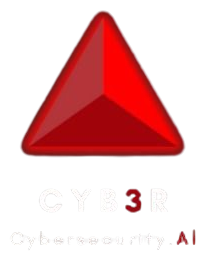Diploma In DFIR and Computer Forensics
The Diploma in DFIR and Computer Forensics is a comprehensive one-year program designed to provide in-depth knowledge and hands-on experience in digital forensics and incident response. Students will learn techniques to investigate and recover digital evidence, respond to cybersecurity incidents, and work with cutting-edge forensic tools. By the end of the course, you will have a solid understanding of the technical and legal aspects of digital forensics, preparing you for a successful career in the growing field of cybersecurity and forensic investigations.
Course Duration
1 Year
What You’ll Learn:
Digital Forensics Fundamentals: Understand the core concepts of digital forensics, including evidence acquisition, preservation, and analysis.
Incident Response Techniques: Learn the processes and best practices for responding to cyber incidents and mitigating damage.
Computer Forensics: Study how to investigate and analyze data from computers and storage devices to recover evidence.
Data Recovery: Master techniques for recovering deleted or damaged files from different devices and media.
Network Forensics: Understand how to capture and analyze network traffic to identify intrusions and breaches.
Mobile Device Forensics: Learn the methods used to recover data from smartphones, tablets, and other mobile devices.
Malware Forensics: Study how to analyze and trace malicious software that may have been used in an attack.
Legal and Ethical Aspects: Explore the legal frameworks surrounding digital forensics and the importance of maintaining the chain of custody.
Advanced Forensic Tools: Get hands-on experience with industry-standard tools for digital forensics and incident response.
Course Curriculum
Section 1: Introduction to Digital Forensics and Incident Response
Section 2: Computer Forensics and Evidence Handling
Section 3: Data Recovery and Preservation
Section 4: Network Forensics and Analysis
Section 5: Mobile Device Forensics
Section 6: Malware Analysis and Forensics
Section 7: Incident Handling and Response
Section 8: Forensic Tools and Software
Section 9: Legal, Ethical, and Professional Considerations
Section 10: Practical Case Studies and Project Work
Course Features:
Hands-on Labs: Engage in practical exercises with real-world tools and scenarios to sharpen your skills.
Access to Industry-Standard Tools: Work with popular forensic and incident response software such as FTK, EnCase, and Wireshark.
Expert Instructors: Learn from experienced professionals in the field of digital forensics and incident response.
Certification: Upon completion, earn a diploma that proves your expertise in DFIR and computer forensics.
Career Support: Receive job placement assistance to help you land roles in cybersecurity and forensics.
Who is This Course For?
Aspiring Digital Forensics Investigators: Individuals interested in pursuing a career in digital forensics or incident response.
Cybersecurity Professionals: IT and security professionals looking to expand their knowledge in forensics and incident management.
Law Enforcement Personnel: Those involved in cybercrime investigation and evidence gathering.
IT Administrators and Analysts: Professionals wanting to learn about the processes of evidence collection and analysis during incidents.
Anyone Interested in Cybersecurity: Individuals passionate about learning how digital forensics plays a critical role in cybersecurity and criminal investigations.
Skills You’ll Gain:
Forensic Investigation Techniques: Master the process of gathering, analyzing, and preserving digital evidence.
Incident Response Management: Understand how to manage and mitigate cyber incidents effectively.
Data Recovery: Gain expertise in recovering data from different types of devices and storage media.
Network Traffic Analysis: Learn how to analyze network traffic for signs of breaches or intrusions.
Legal and Ethical Knowledge: Understand the legal and ethical considerations in handling digital evidence.
Forensic Tool Proficiency: Become proficient in using forensic software and tools to conduct investigations.
Important Note:
Prerequisites: Basic understanding of computer systems and networks is recommended, but not mandatory. Prior knowledge of cybersecurity concepts can be beneficial.
Hands-On Work: Expect a significant amount of practical, hands-on experience with tools and techniques used in the industry.
Legal Considerations: Ensure you have an understanding of the laws related to digital evidence, including issues like chain of custody and admissibility in court.
